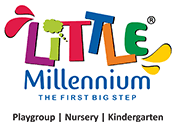
Nurturing Pre-Reading Skills In Preschoolers
As adults, we have come to understand the importance of reading in our lives. Almost all parents realize that their children need to read for better growth and development. And hence they give a lot of importance to the literacy learning that their child receives from their preschool. As much as it is fair, the entire exercise of reading cannot, or rather should not be limited to an academic environment. Parents of toddlers don’t need to wait till the child reaches the ‘reading age’. Instead, they can familiarize their little ones to the art of reading from their infancy stage, and make it a part of their child’s life.
Importance of reading
There’s a famous saying by Dr. Seuss which goes as, “The more you read, the more things you will know. The more that you learn, the more places you’ll go.” Even though the significance of this statement is quite difficult to comprehend for young minds, it is upon the parents to drive their child towards learning and exposing their minds to new ideas and all that the world has to offer. Helping your child to develop pre-reading skills is one of the best things a parent can do.
Reading is the first step to learning
Introducing the art of reading in your child’s life can be effectively done through audio-visual interaction, much before they can learn to read themselves. In fact, research says, that the ideal place for parents to start reading out to their child is soon after birth. Orienting them gradually with reading at home, creates a mental comfort for the tender minds, which eventually makes learning to read easier for them when they start on their own.
Language and vocabulary development
To help with language development of your child, it is important for you to interact with them and expose them to language that they would speak in. Experts believe that parents can start building their child’s vocabulary by reading out new words and phrases to them. Pre-reading skills contribute to language development through exposure to a wide vocabulary of words, expressions, sentence structures and so on. Reading out and repeating the words and sentences in the most interactive manner will allow children absorb, even if they cannot speak. When they start reading, their brain would automatically relate to those words which they have been read out to.
It is important for them to recognize how words are made up of smaller sounds or phonemes. Actions like clapping for syllables, rhyming, and creating sounds for sounding words, can help your child identify the word or the letter they hear. By hearing and seeing your actions, children combine the phonemes and form words and phrases, which is the first step to language development. This helps develop their ‘phonological awareness’ which leads them to be successful in literacy learning when they start preschool. Phonological understanding in children is also critical for reading and writing as they grow up. And reading is a great platform to make them aware of phonetics.
Reading can be motivational
How to make reading a motivational activity? The way to do this is to make the reading experience full of joy and wonder. Because when children find anything joyful or intriguing, they enjoy it more and find the activity motivating. It creates energy for them. Learning is more meaningful and effective when children are stimulated and inspired. Children whose parents read out to them from infancy and who themselves enjoy the act of reading, are more likely to have better pre-reading skills and are more motivated to read, as opposed to those who have not experienced being read to.
Instilling pre-reading skills in your child
To instill good reading habits and nurture pre-reading skills in your toddlers, here are a few things you could integrate into your child’s life:
Start from the start
At first, children are not able to read but can hear and remember things. So use that potential of your child by making them listen to nursery rhymes. And this exercise is most likely to be effective if you sing out yourself to your little one. The more animated you can be, the more fun it is for your child.
Read out loud
Extending from our previous point of how children can remember from hearing much before they can read, it is essential to make sure that your voice is audible when you read out to you child. Research also shows that reading out loud can increase the brain capacity of children with respect to linguistic skills.
Make the reading activity a special one
Making the entire exercise of reading a special thing to do in the day, or some days of the week can make it more enjoyable for your child. A classic example followed traditionally is the ritual of ‘bedtime stories’. Similarly, you could make going to your neighborhood library or children’s bookstore a singular activity, so your child relates it to reading. Perhaps a Sunday morning picnic in the park with some swing time and some reading time. Or call your child’s friends over for a story-telling session, so they get to listen to stories with their friends. A reading ritual can bring motivation and make your child look forward to that ‘special time’
Integrate simple questions and answers
While you read out a story or pronounce words, create an interactive session with your child by introducing questions and answers. With infants, you might answer the questions yourself. With preschoolers, you could instigate them to give the answer. Always remember to ‘ask’ and not ‘grill’.
On a parting note…
Learning is a complex process for children. For them, to listen, comprehend and process new words every day is a magnanimous task and requires multiple skills at the same time. Every child develops these skills gradually. While some children are fast learners, others might take time. Every child is unique and has their own learning curve. As a parent, you need to be doubly patient with your child and enjoy the journey yourself.
